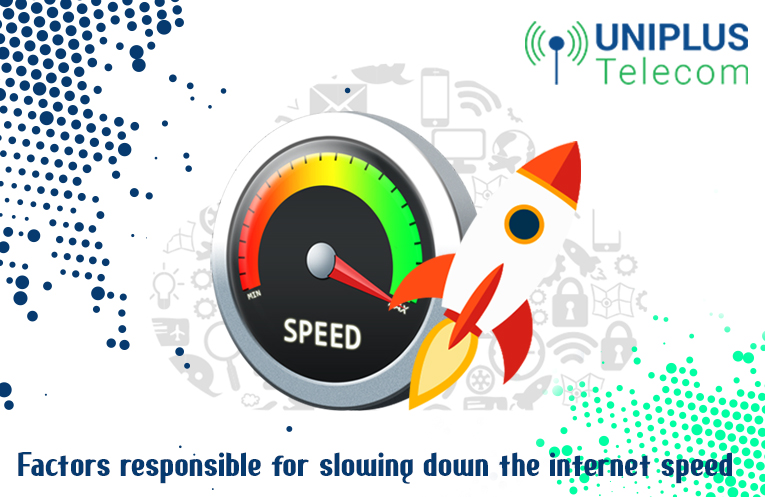Slow internet speed can be frustrating and when a user faces this issue despite their subscription to a business fibre broadband, nine out of ten times, the internet service provider tends to be the casualty of it.
While it is hard to find a subscriber who has never faced an issue with the slowness of internet speed, it is important to understand there could be a number of underlying factors that contribute to it. In other words, a provider may not always be at fault for the sluggish operating speed of your internet network.
Factors Responsible for Slowing Down The Internet Speed
Apart from a fault or breakdown in the wiring system, there can be a number of other factors responsible for slowing the speed of a fibre broadband connection. These are as follows:
- Type of Connection
When it comes to a broadband connection involving fibre optics, users get two kinds of choices: FTTP (fibre to the premises) and FTTN (fibre to the node). If you have an FTTN connection to your office building, you have to be content with a slower internet speed than the one assured by your provider as it terminates at a point from which the remainder of the distance is covered by copper lines. Even as you get an FTTP connection for your business from your provider, still you may experience slowness of speed due to reasons other than the one linked to it.
- Location
The availability of business fibre connectivity is limited to only a few areas in the UK. To provide better speeds to users, providers may provide an FTTN connection instead of FTTP connection. This can cause the internet speed to diminish in comparison to an FTTP connection.
- Network Congestion
When a number of people are connected to an internet network, it can result in a declined speed due to network congestion. In most companies, a number of employees tend to connect to the internet simultaneously. This can cause a network to get congested and eventually slow down. Even as you upgrade to fibre broadband from traditional broadband or get a fibre broadband altogether, you may still face slowness owing to the broadband provided by your provider at peak hours.
- Router and Setup
Though overlooked, the manner in which a router is set up and used can greatly affect the speed of a broadband connection, including a fibre broadband connection. If a wireless signal has to pass through a number of walls or cover a greater distance to reach a user, Wi-Fi signals become weaker. This can play a part in reducing the speed of your wireless internet.
It is evident from the above that though a fault from the end of service providers is primarily responsible for the slowness of the internet speed in a majority of cases, it can also happen due to umpteen other reasons. So, when you encounter the issue to slow internet speed, it is a good idea to take a look at the underlying causes before bringing it to the notice of your service provider.
Contact Trust Telecom for a highly reliable business fibre broadband connection.



